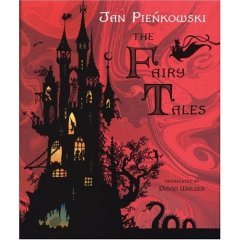What We Really Need Is a Big Billboard That Says, "No Fat Lit"
There's been a bit of a pattern I've been noticing in the children's literature blogworld lately: everyone's complaining, or commending, or commenting in some way about the recent glut of mediocre fantasy novels that have been hitting us over our collective heads in 865-page servings lately.
- Roger Sutton made a comment or two on his blog, which garnered many, many repsonses.
- Fuse #8 rejoiced over the novel The Road to Paris because it was a nice middle-grade novel instead of a chubby fantasy.
- And on Oz and Ends, there's a big ol' full-blown essay about the whole thingamajing.
Now it seems that everybody's reading fantasy, and while it's kind of gratifying to see this genre recieve the attention that I always thought was its due, it's also frustrating to see so many lousy knockoffs of the Real McCoys. But like those tacky tourist stands, it supports the local economy -- in this case, fantasy authors -- who I hope will in turn separate the wheat from chaff and create better and newer attractions for us tourists in the future.



1 comment:
Whenever I visit schools to read Pond Scum kids ask when the sequel comes out. Good thing or bad thing? Seems young readers have sort of been programmed to expect their stories to go on and look for the "what happens next" to be written - instead of imagined.
alan
Post a Comment